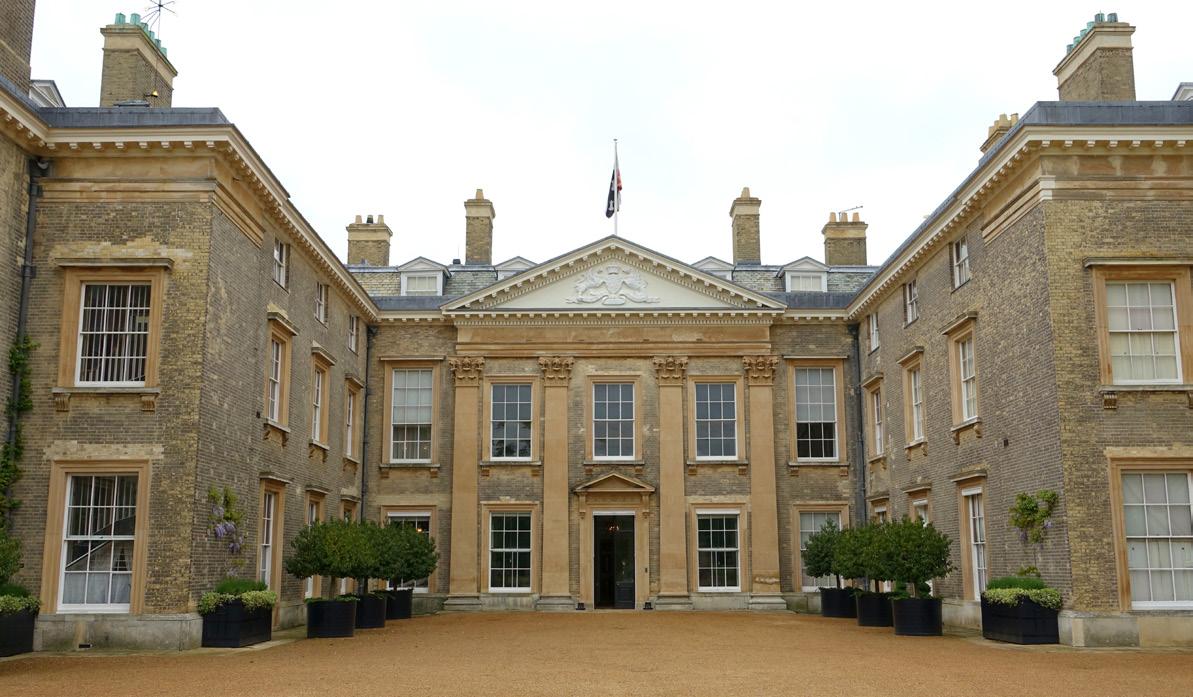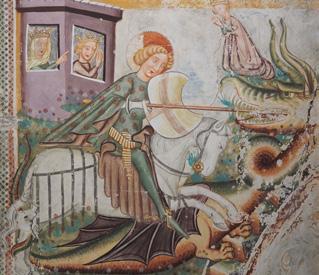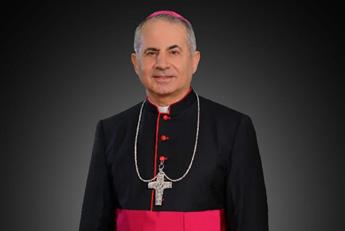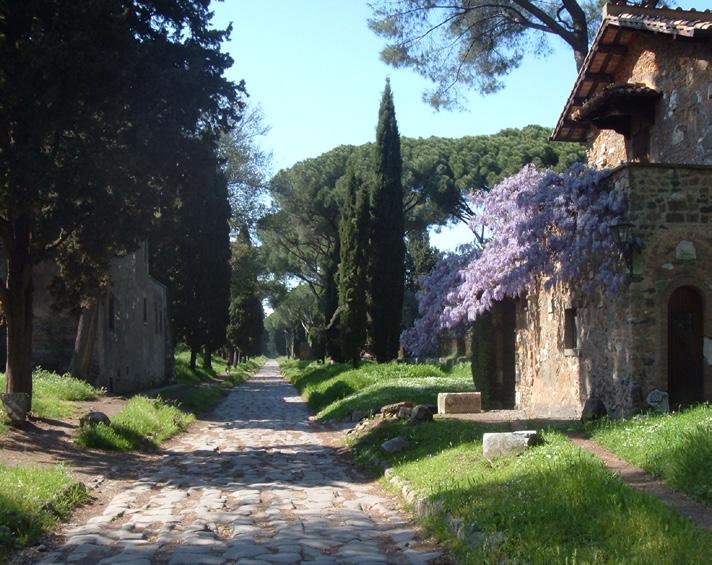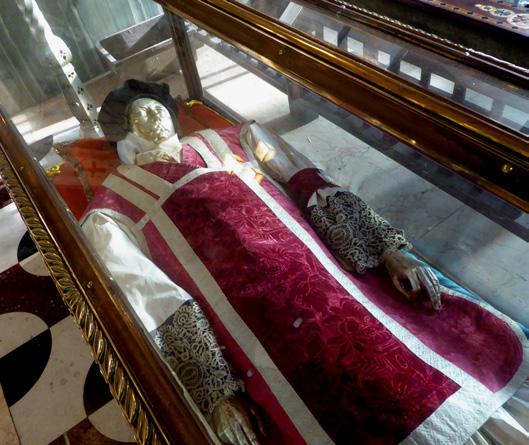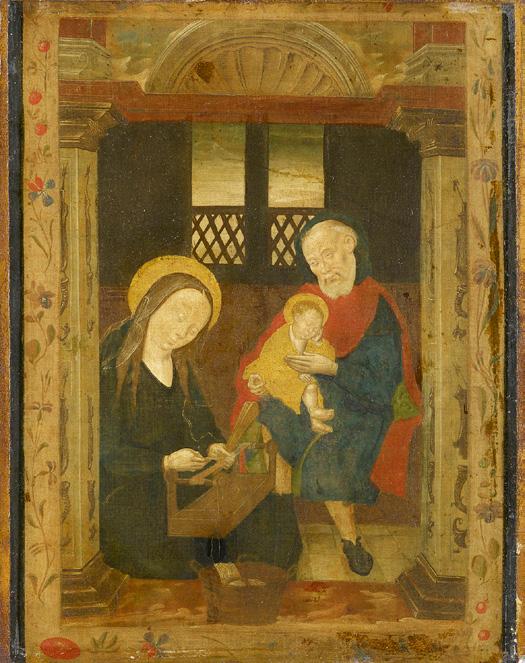THE FAITH IN BRITAIN
Could Christianity have reached Britain in Dr Michael Straiton KCSG Dr Straiton considers the spread of the Church in the early centuries as it grew alongside the Roman Empire.
© La Cappella Brancacci in Santa Maria del Carmine, Florence
The short answer is that most historians would say ‘No’ as there is no evidence, but Christianity appeared elsewhere at that time and it is intriguing to consider that it could have arrived in Britain in the 1st century AD as well. Roads and sea lanes throughout the Roman Empire had been well developed by then, making travel fast and safe.
St Peter preaching, by Masolino da Panicale
In AD 33 Jews had flocked from their homes across the Roman Empire to celebrate the agricultural festival of Shavuot, the Day of Pentecost, 50 days after Passover, in the Great Temple of Jerusalem. At this time, in fulfilment of the promises of Christ, the Holy Spirit descended on the Apostles and others in the Upper Room in Jerusalem and instilled them with supernatural zeal and courage. While they were there, Peter delivered his first address to the crowds, preaching the life-giving Gospel of Jesus Christ; he told them: ‘Repent, and be baptized, every one of you, in the name of Jesus Christ for the forgiveness of your sins; and you shall receive the gift of the Holy Spirit’. About 3,000 Jews converted, 8
we are told, and accepted baptism. This is celebrated as the birthday of the Catholic Church and the start of her universal mission to the world; the Apostles left the Upper Room to begin their work. Trade routes had long been created across the Roman Empire and beyond. The route of the earliest missions from Jerusalem had followed the path of Phoenician colonisation and the tin trade as described by Didorus Siculus, a Greek historian who flourished in the 1st century BC. Bronze was widely used throughout Europe; it was mined as cassiterite, the tin ore that, being smelted with molten copper, produces the alloy bronze and was in great demand. Major sources of tin ore were Devon, Cornwall and also Brittany. Suggestions of Jewish trading-posts in the south-west of Britain arise from the discovery of an ancient smelting furnace near Marazion and the name could mean ‘Sight of Zion’. The nearby village of Menheniot could have come from two Hebrew words min oniyot which mean ‘from ships’. After the Jewish Revolt in AD 70, some Jewish slaves are likely to have been transferred to Britain to work in the tin mines. Jewish soldiers in the Roman Army also served in Britain. In Cyprus, Crete, and Sicily we see Phoenician colonies where the Jews and Phoenicians and their descendants had been working together for centuries. These have been singled out as the initial outposts of Christian effort. In tradition, the more distant trading ports or colonies – at Marseilles, in Sardinia, Spain and in Cornwall – traces may be found of Hebrew missionary effort long before actual recorded history. It was during this time that Christianity appeared in Marseilles, as evidenced by the catacombs above the harbour and records of Roman martyrs. According to Provençal tradition, Mary Magdalen evangelised Marseilles with her brother Lazarus.
Christianity soon discovered that the new Faith was disliked by Roman authorities who were keen to maintain the status quo by preserving the integrity of the Roman pantheon of gods that helped to maintain the stability of the State. Julius Caesar had invaded Britain in 55 and 54 BC, but marched as far as London and then retired home. As Dictator he became too powerful for the liking of the Senate and was assassinated on the Ides of March – 15 March 44 BC. He was succeeded by his great- nephew Octavian, who ruled from 27 BC to 14 AD. He was careful not to make his predecessor's mistake in making himself too explicitly powerful. Greatly enlarging the Empire, he was declared Augustus and the first Emperor. When he died, he was declared a god and joined the Roman pantheon. Soon the following Emperors also declared themselves ‘gods’ and required equal devotion. Their images were on all the coins and pictures of them were placed on an altar when the public could be required to sprinkle a pinch of incense as an offering to affirm their devotion. The next to rule was Tiberius (1437 AD), the adopted son of Augustus, who established the concept of ruler as god, although his erratic behaviour was unpopular with the citizenry. Gaius Caesar nicknamed Caligula - ‘soldier’s little boot’ – followed and achieved feats of waste and carnage during his fouryear reign (37-41 AD) unmatched even by his infamous nephew Nero. Caligula commanded that he be worshipped as a god, and temples were to be built in his name. Trouble for Christians soon arose, since they could not conform to the Empire’s religion as they worshipped the One God, Father, Son and Holy Spirit. Although some Christians were killed during Caligula's reign, Christianity was still regarded as a sect of Judaism, which was a legally recognised religion. At the beginning of the 1st century much of Britain was ruled by Cunobelinus, king of the Catuvellani, Oremus
APRIL 2021

